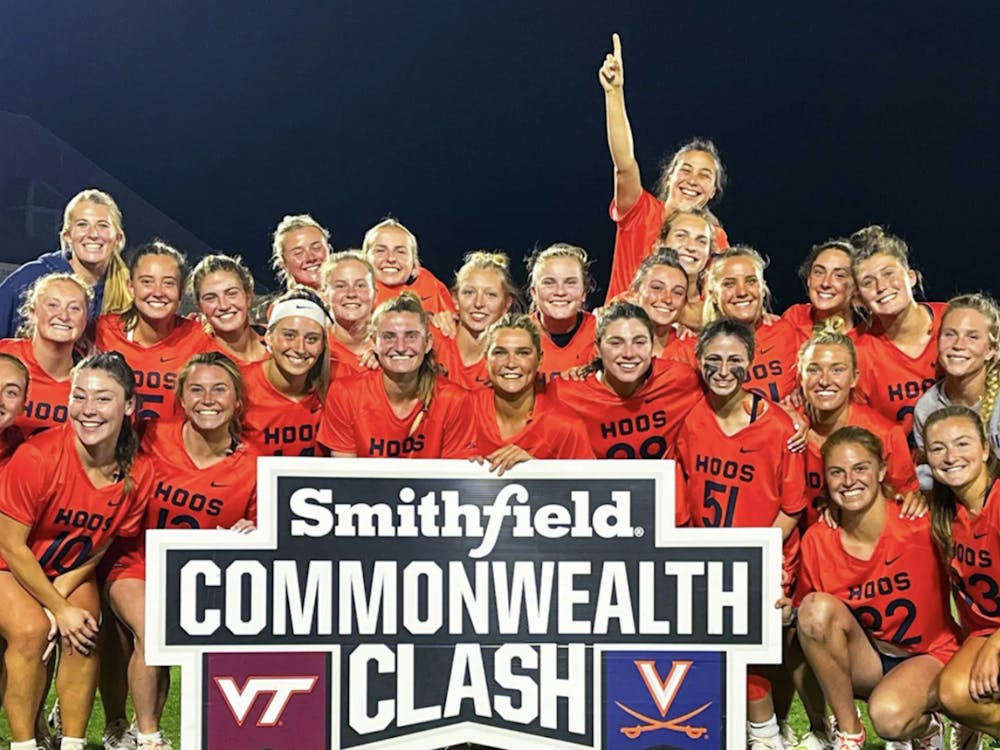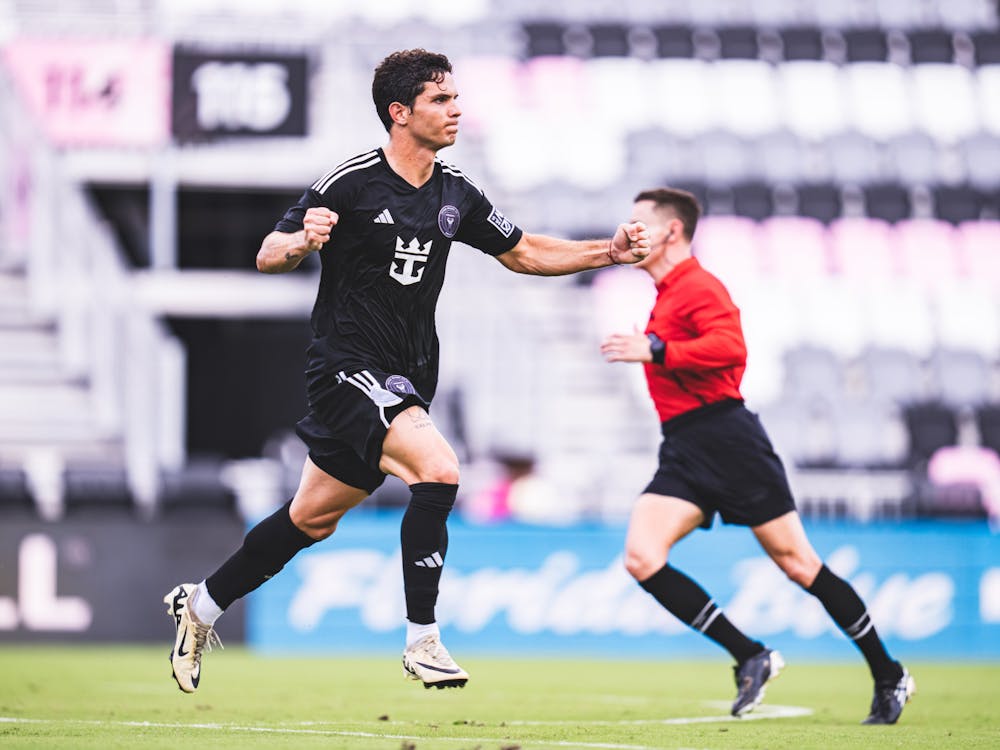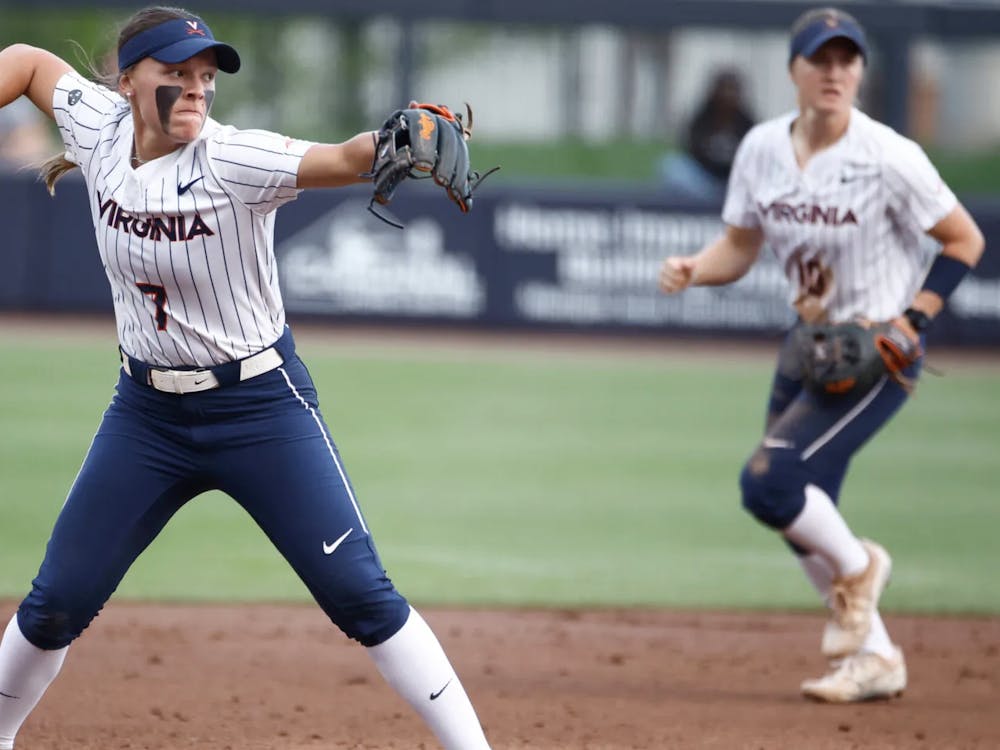For three-and-a-half years - in accordance with Cavalier Daily style guidelines - I have been typing, "Virginia coach Al Groh." Striking any other keys prior to that name is truly an odd experience.\nHere goes: A week ago, I had the opportunity to catch up with new Georgia Tech defensive coordinator Al Groh. For those of you that haven't been keeping up, Groh was hired by Yellow Jackets coach Paul Johnson Jan. 14 - 46 days after Groh was fired from his post at Virginia.
Though Groh is already at retirement age (he's 65) and certainly has plenty of money (Virginia owes him a severance package of $4.33 million), he hinted even when he was fired that he was far from done coaching. In an e-mail that was sent to reporters the day he was let go, Groh said, "I have every confidence that this will be a positive change for the Groh family and I look forward to my next game."
So, Groh wasn't done coaching - but he wasn't going just anywhere. During my conversation with Groh, he confirmed four criteria that he had already revealed for his next coaching post:\n1. A commitment to winning\n2. A high level of integrity\n3. Full collaboration on all levels toward the objectives\n4. The personnel already in place such that there was a good chance to smile at the end of the game
The Yellow Jackets - the reigning ACC champions - clearly meet all of these criteria. And, though Georgia Tech scored more than 30 points per game, it also gave up nearly 25. A seasoned defensive coordinator like Groh was exactly what the team was looking for; it's hard to argue that he isn't a solid coach on that side of the ball.
What was your thinking process after Virginia? Was retirement ever an option?\nThe plan was always to continue to be active in doing this. I can explain that by a statement that Tom Moore - who's the offensive coordinator with the Colts - made last week. There was a lengthy article on the front page of USA Today, kind of about the relationship between Tom Moore and Peyton Manning - not just the personal relationship, but how they go about trusting each other, and the calling of plays, and the running of the game. Tom has been aligned with highly productive offenses for a long time - he's 71. The writer posed a question as to his retirement. He said, "I don't have any plans to retire. I guess at some point, I'll get into a stage where nobody will ask me to work for him, so I guess that means I'll be retired." So I read that and I said, "Well, I think that explains things pretty well."\nAnd how did I assess that? Well, I have all the energy that I've ever had. I have all the ambition to accomplish things that I've ever had. I really like the whole process of competition, and helping players improve. And I still feel like I have a lot of things to accomplish and to prove. This is an environment which I've operated for a long time, and which I feel comfortable in, so we're going to keep on going.
Was there any college-over-pro choice in coming to Georgia Tech, or was it just wherever your criteria fit best?\nIt was strictly that criteria, where I could find the best combination. Definitely part of that criteria was to be involved with a veteran coach rather than a rookie coach, somebody who really had his plan in place. That plan didn't necessarily have to be the same as my plan, but one where I knew he had a proven way of doing things. And then it would be up to me to fit in, not for them to accommodate me.\nBut I didn't think it would be fair to either party to be in some circumstance where some fellow was just trying to figure it out. I could relate to it, like I had to a long time ago, and now be sitting there thinking, there's a better way to do this than that, but it's not my place to say. I didn't think that would be fair to any party.\nI wanted to get it with a proven guy, and obviously coach Paul Johnson has won big at three places - he won big at Georgia Southern, he won big at Navy and he's won here. Clearly they have a very defined plan of doing things that has proven successful on a number of different fronts.
I understand that Paul Johnson called you first - describe how that process went to the point when you were hired.\nShortly after I left Virginia, Paul called to, one, just say, "I respect everything you guys did there, I thought you guys did a great job," - clearly we probably were as competitive against Georgia Tech over the two years that he's been here as any team in the conference with our two games - and, "By the way, what are your plans?" So I told him really what you and I just discussed [in the previous question], and he said, "Would you be interested in doing it here?" Frankly, coming from the coach who had just won the conference championship, that he would think that we could do something to help them out, we were flattered by that and immediately interested.
You're running the 3-4, as you always have. What do you expect your role to be in the overall scheme of things and how your system will fit in with Paul Johnson's overall system?\nCoach Johnson's very involved with the offense - it's his offense, he's run it highly successfully at a number of different places, he calls all the plays during the course of the game. But as the head coach, he also knows how he wants every phase of the program to look - recruiting, special teams, offense, defense.\nBut during the course of a game-week preparation, and certainly during a game, he's got to give a lot of focus to the responsibility of getting ready to call the game. So as any head coach would, he knows what he wants his defense to look like, but he really wants it to look that way without the necessity of his giving substantial time to it because clearly he can only be in so many places at once.\nSo that's what he's asked us to do, is make this defense look the way it needs to, make this defense play at a championship level as he would expect it to, without his having to devote a major amount of time to it.
You've been an assistant many times in your career, but what is the adjustment for you going from running a program to being an assistant coach?\nIt's very easy to do. Again, I'm very appreciative that he would think to us because there are many people who, just on principle, wouldn't be interested in somebody who had been a head coach for 16 years. Like, "not going to fit in," or, "there's a way we do things," or, "intimidated by it," or whatever it might be. Obviously as a result of his accomplishments, he's secure and confident enough that, all he wants to do is what's necessary to keep his team moving forward, and I think I have, in being in charge, a pretty good appreciation of how a good, valuable assistant coach operates.\nFor a time frame there, I worked as hard as I could at being the best head coach that I could be. Now I'm going to work equally hard at being the best assistant coach that I can be. That's my role, and I just want to accomplish within that role. There's a way that has been successful here, and now it's my job to find out how those things go. If I'm asked an opinion on something, give it; otherwise, keep my eyes and ears open, and make the transition.
Looking back now, what were some of the highs and lows of your time at Virginia?\nIt was a time of accomplishment. We had some very, very good teams there, and some very good seasons, and some teams that accomplished some things that had never before been accomplished there. So that's gratifying to do that.\nBut what we remember the most is the players ... That's really what you remember more than the games themselves, is the players. And on that line, a really fun thing here recently was to put on the TV and see [former Cavaliers] Matt Schaub, D'Brickashaw Ferguson and Heath Miller all in the huddle together in their very first Pro Bowl. Obviously they're very distinguishable because each one had their individual team helmet on.\nAnd there they were. To think about when those guys were in the huddle together when they were playing in college, and now here's the first time they've been back in the same huddle, and they're all in their first Pro Bowl, that's pretty neat.
Is there one thing that you can pick out that you took from your time at Virginia?\nNot necessarily a new thing but confirmation of a principle that we got exposed to early, and we have seen the plus side of it and the negative side of it, and many coaches are aware of it. In the totality of the organization - that is, everybody in it - the collaboration and the communication creates long-term success. When that's in place, you see those organizations - whether it's the San Antonio Spurs or the New England Patriots or the Indianapolis Colts or the Los Angeles Lakers or Alabama football or whatever - those places that stay in a long-term cycle of success, that's usually in place. I think our time there [at Virginia] confirmed that.
What do you think it will be like when you see orange and blue on the other sideline this coming season?\nThere'll be a lot of players there who mean a good deal to me, a number of which have stayed in touch with me here. But I've been asked that question a few other times, and what I've said was I've been in enough situations where a team I was currently coaching for was playing against a team I had previously coached for, that, if I got overly sentimental at that prospect, I'd be coaching with tears in my eyes the whole season.\nFor example, one year, in '96 when we were with the Patriots, we went to the Super Bowl, and five days later, Bill Parcells left to go to the Jets, and we all left, and four games later, we were coaching against the Patriots. So it doesn't get much more extreme than that.\nBut on any team that you coach for, what the players deserve is your unrequited efforts toward their performance. And that's what a professional does: He gives his very best to the circumstance that he's in. That's why our perspective on this is all forward-thinking. Maybe at some point in time we'll spend more time looking at the pictures and thinking about those things, but what we're really focusing on and enjoying is getting ready for the 12 games that are coming up, and not really thinking about the 12 games that just got played.
How much will you remain involved with the University community, even just as an alum?\nWe're maintaining our house in Charlottesville ... The University of Virginia, as a student and an employee, was very good to me. I profited from it, so it will always be part of our history and our family history. Between all of us, three of us have degrees from Virginia. It's been part of our history, and we've been part of it's history, so we're appreciative of that, and we're very proud of that.\nNow that I'm no longer associated with the program, since I'm just an alumnus, I guess I'm free to have all sorts of opinions as to what the coach should do.
That leads me into my next question: Having seen Mike London develop under you as your former assistant, what are your thoughts about him inheriting the Virginia program?\nHaven't given any thought to it at all. All I'm thinking about is how I can get this defense to play well.




